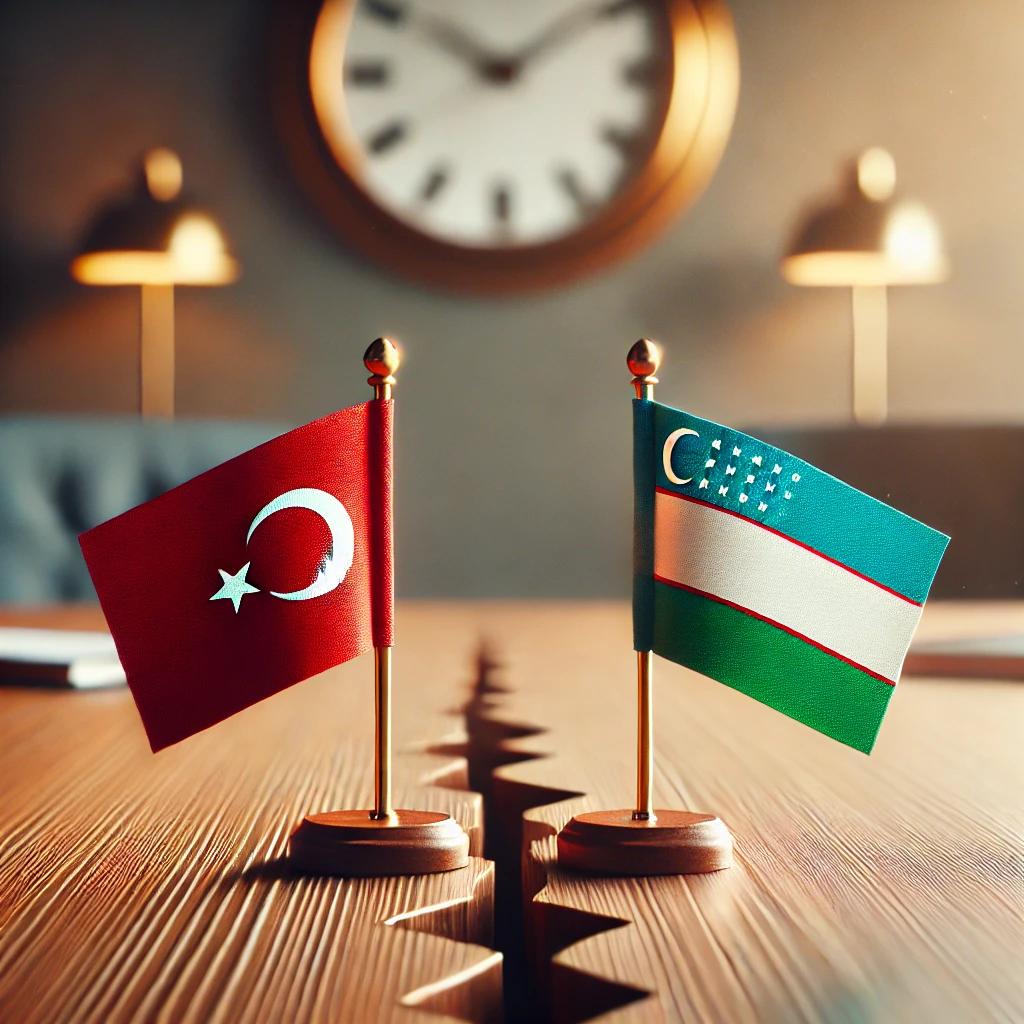2025
2025
2025-01-30

For the Turkic cooperation, the relations between Turkey and Uzbekistan are of particular importance. However, they have not always been smooth. This was especially evident in the 2000s. The decades-long tensions between the two countries have been one of the main obstacles to Turkey’s influence expansion in Central Asia.
In the initial period, relations between these two countries were friendly. After Uzbekistan’s independence was recognized, the country’s president, Islam Karimov, paid his first official visit to Turkey and stated: “If Turkey supports us, from now on, no one will be able to subjugate the Uzbeks... Atatürk’s principles align with what we want to achieve in Uzbekistan. I admire Atatürk and hope that the peoples of Central Asia will also achieve what he achieved in Turkey. I support the idea of the unity of the Turkic people; this unity must definitely be realized. Instead of political unification, an economic union can be established. It could also be called the Turkic common market.”
After that, the two countries developed active cooperation in economic, cultural, political, educational, and other fields. Many Uzbek students enrolled in Turkish universities. However, such warm relations did not last long. They deteriorated when, in 1993, the opponents of Uzbek President Islam Karimov, particularly Muhammad Salih, who was known for his religious views, found refuge in Turkey.
Turkey refused to extradite him to Uzbekistan, which became a reason for the deterioration of bilateral relations. Following this, in 1994, the Uzbek authorities temporarily recalled their students studying in Turkey.
Uzbekistan has always been suspicious toward Turkey’s religious policies which has become a source of tension in bilateral relations. The Islamist-oriented policies of Turkish Prime Minister Necmettin Erbakan made the Uzbek authorities particularly cautious on this issue.
In February 1999, following the terrorist attacks in Tashkent carried out by Islamist extremist groups—targeting President Karimov as well—the Uzbek authorities believed that Turkey’s financial support for Uzbek radical Islamic forces had contributed to the rise of extremist activities.
Muhammad Salih was accused of organizing the attack, and Uzbekistan’s request for his extradition was rejected again. Following the rejection, numerous Turkish businesses and schools in Uzbekistan were shut down, especially those linked to Fethullah Gülen. Among the Central Asian countries, Uzbekistan has been the most suspicious and cautious regarding these schools, viewing them as tools for promoting the spread of Islam and enhancing Turkey’s influence in the country. By 2001, all Gülen-affiliated schools in Uzbekistan had been closed.
The situation worsened further when Turkey joined the European Union’s statement condemning Uzbekistan over the events in Andijan in 2005—unrest in eastern Uzbekistan that resulted in the deaths of hundreds of people, including law enforcement officers. Overall, throughout Karimov’s presidency, Turkey’s foreign policy was perceived in Tashkent as negative for the region and a source of instability.
The situation changed only in 2016 after Karimov’s death, when Shavkat Mirziyoyev became the president of Uzbekistan. In 2017, he visited Turkey, and by 2020, bilateral relations had reached the level of a strategic partnership. In 2018, Uzbekistan announced its intention to join the Turkic Council, and in 2022, it became a member of the Organization of Turkic States. Currently, the two countries actively cooperate in economic and security sectors.
Nevertheless, Uzbekistan tries to prevent the excessive expansion of Turkish influence in the country. In 2019, the broadcasting of Turkish TV series was banned on Uzbek television, and the activities of Turkish educational institutions were placed under stricter control, particularly regarding religious education. Uzbek authorities are also cautious about transitioning to a common Turkic alphabet based on the Turkish language. Moreover, Uzbekistan pursues a balanced foreign policy regarding Turkey, maintaining active cooperation with both Russia and China.